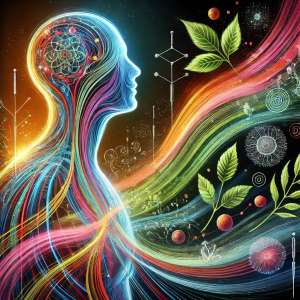By: Dr. Laura Chen, Holistic Health Specialist
In an era where modern medicine often takes center stage, alternative medicine provides a complementary and holistic approach to health and well-being. This article delves into the world of alternative medicine, exploring various practices such as acupuncture, homeopathy, and naturopathy, and highlighting their benefits.

Understanding Alternative Medicine
Alternative medicine encompasses a range of therapies and practices that are not typically part of conventional Western medicine. These practices focus on treating the whole person—mind, body, and spirit—rather than just addressing symptoms. By integrating these holistic approaches with modern medical practices, individuals can achieve a balanced state of health and well-being.

Acupuncture: Balancing Energy
Acupuncture is a key component of Traditional Chinese Medicine (TCM). This practice involves inserting thin needles into specific points on the body to balance the flow of energy, or Qi. Research has shown that acupuncture can effectively treat various conditions, including chronic pain, migraines, and stress. By stimulating specific points, acupuncture helps to restore balance and promote natural healing.
The history of acupuncture dates back thousands of years. It is based on the belief that energy flows through pathways in the body called meridians. When these pathways are blocked or imbalanced, it can lead to illness. Acupuncture aims to clear these blockages and restore the natural flow of energy, thereby improving health.

Homeopathy: The Power of Natural Remedies
Homeopathy is based on the principle of “like cures like.” It involves using highly diluted substances to trigger the body’s natural healing response. Homeopathic remedies are derived from plants, minerals, and other natural sources. These remedies are tailored to each individual’s unique symptoms and are believed to stimulate the body’s self-healing mechanisms. Homeopathy is commonly used for conditions such as allergies, asthma, and skin disorders.
One of the key concepts in homeopathy is the idea of potentization. This process involves diluting a substance multiple times and vigorously shaking it. Homeopaths believe that this process enhances the healing properties of the substance while minimizing its potential toxicity. Homeopathy offers a gentle and non-invasive approach to healing, making it suitable for people of all ages.

Naturopathy: Embracing Natural Healing
Naturopathy focuses on using natural therapies to support the body’s ability to heal itself. Naturopathic practitioners use a combination of techniques, including nutrition, herbal medicine, and lifestyle counseling, to address the root causes of illness. This holistic approach emphasizes prevention and the promotion of optimal health. Naturopathy is effective in managing chronic conditions such as diabetes, hypertension, and digestive disorders.
Naturopathic doctors (NDs) are trained in both conventional and alternative medicine. They take a comprehensive approach to health, considering factors such as diet, lifestyle, and emotional well-being. NDs aim to empower patients with the knowledge and tools they need to achieve and maintain good health.

Energy Healing: Harmonizing the Body’s Energies
Energy healing practices, such as Reiki and Qigong, focus on balancing the body’s energy fields to promote healing and well-being. These practices involve the transfer of energy from the practitioner to the patient, helping to clear blockages and restore harmony. Energy healing is believed to reduce stress, enhance relaxation, and support the body’s natural healing processes. It is often used as a complementary therapy for conditions like anxiety, depression, and chronic pain.
Reiki, for example, is a Japanese healing technique that involves the laying on of hands. Practitioners believe that this technique allows them to channel healing energy into the patient, promoting physical and emotional healing. Qigong, on the other hand, combines movement, meditation, and controlled breathing to enhance the flow of energy in the body.

Herbal Medicine: The Wisdom of Plants
Herbal medicine uses plant-based remedies to treat various health conditions. Herbs have been used for centuries in different cultures for their medicinal properties. Herbalists use a variety of plant parts, including leaves, roots, and flowers, to create remedies that support health and well-being. Herbal medicine is effective in treating conditions such as insomnia, digestive issues, and hormonal imbalances. It offers a natural and gentle approach to healing.
One of the advantages of herbal medicine is its ability to address multiple symptoms simultaneously. For example, a single herb might have anti-inflammatory, antioxidant, and immune-boosting properties. This makes herbal medicine a versatile and holistic option for supporting health.

Mind-Body Practices: Connecting Physical and Mental Health
Mind-body practices, such as yoga and meditation, play a crucial role in alternative medicine. These practices emphasize the connection between the mind and body, promoting overall well-being. Yoga combines physical postures, breathing exercises, and meditation to enhance flexibility, strength, and relaxation. Meditation practices help to reduce stress, improve mental clarity, and foster emotional balance. Incorporating mind-body practices into daily routines can significantly improve health and quality of life.
The benefits of mind-body practices extend beyond physical health. For example, regular yoga practice can improve mental focus and emotional resilience. Meditation can help individuals develop greater self-awareness and compassion. By cultivating a strong mind-body connection, individuals can achieve a greater sense of harmony and balance in their lives.
Integrative Approaches: Combining Modern and Traditional Practices
Integrative medicine combines the best of modern medical practices with traditional healing techniques. This approach recognizes the value of both conventional and alternative therapies in promoting health and well-being. Integrative practitioners work collaboratively with patients to develop personalized treatment plans that address their unique needs. By combining different modalities, integrative medicine aims to achieve comprehensive and holistic care.
Integrative medicine is based on the principles of patient-centered care and evidence-based practice. Practitioners take the time to understand each patient’s health history, lifestyle, and goals. They then recommend a combination of treatments that might include medication, dietary changes, physical therapy, and alternative therapies. The goal is to provide a balanced and individualized approach to health care.

Conclusion
Alternative medicine offers a diverse range of holistic approaches to health and well-being. Practices such as acupuncture, homeopathy, naturopathy, energy healing, herbal medicine, and mind-body techniques provide valuable tools for achieving optimal health. By embracing these holistic practices, individuals can take a proactive role in their health and well-being, addressing the root causes of illness and promoting overall balance and harmony.
Alternative medicine is not meant to replace conventional medical care, but rather to complement it. When used in conjunction with modern medical treatments, alternative therapies can enhance the effectiveness of treatment and improve overall outcomes. It is important for individuals to consult with qualified practitioners and to inform their healthcare providers about any alternative therapies they are using. With the right combination of conventional and alternative medicine, individuals can achieve a higher level of health and well-being.
Dr. Laura Chen is a renowned Feng Shui expert and holistic wellness coach with a Ph.D. in Environmental Psychology. With over 15 years of experience, she specializes in applying Feng Shui principles to improve various aspects of life, including health, relationships, and personal well-being. Dr. Chen's unique approach integrates ancient Feng Shui wisdom with modern practices to create harmonious living spaces that enhance sexual energy and intimacy. She conducts workshops and provides personalized consultations to help individuals and couples transform their environments for better health and stronger relationships.


